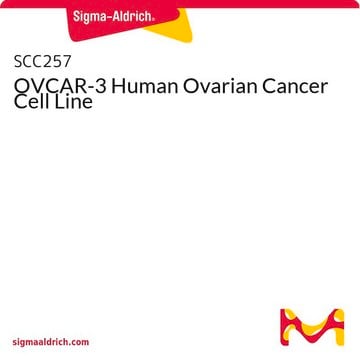Ca Ski
87020501, human cervix (small bowel metastasis), Epithelial
About This Item
Recommended Products
product name
Ca Ski, 87020501
biological source
human cervix (small bowel metastasis)
growth mode
Adherent
karyotype
Modal no. 78
morphology
Epithelial
products
Beta Human chorionic gonadotropin (beta-hCG)
receptors
Not specified
technique(s)
cell culture | mammalian: suitable
relevant disease(s)
metastasis
shipped in
dry ice
storage temp.
−196°C
Cell Line Origin
Cell Line Description
Application
DNA Profile
CSF1PO: 10
D13S317: 8,12
D16S539: 11
D5S818: 13
D7S820: 8,11
THO1: 7
TPOX: 8
vWA: 17
Culture Medium
Subculture Routine
Other Notes
Certificates of Analysis (COA)
Search for Certificates of Analysis (COA) by entering the products Lot/Batch Number. Lot and Batch Numbers can be found on a product’s label following the words ‘Lot’ or ‘Batch’.
Already Own This Product?
Find documentation for the products that you have recently purchased in the Document Library.
Articles
DNA, RNA, cDNA derived from ECACC mammalian cell lines allow screening for genes or expression patterns to identify lines most suitable for specific research.
Our team of scientists has experience in all areas of research including Life Science, Material Science, Chemical Synthesis, Chromatography, Analytical and many others.
Contact Technical Service




